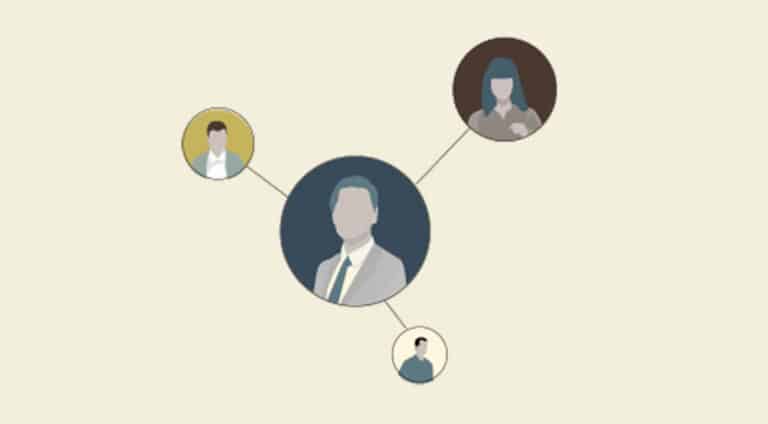LAWCLERK is a first of its kind legal services marketplace that allows attorneys to harness the skill and knowledge of freelance attorneys from across the country. While you can read our 50-state survey HERE, the punchline is that the freelance lawyers on LAWCLERK work in a paraprofessional capacity for the hiring attorney which complies with the requirements of Model Rules 5.3 and 5.5.
Model Rule 5.3 is titled “Responsibilities Regarding Nonlawyers Assistance” and provides:
With respect to a nonlawyer employed or retained by or associated with a lawyer:
(a) a partner, and a lawyer who individually or together with other lawyers possesses comparable managerial authority in a law firm shall make reasonable efforts to ensure that the firm has in effect measures giving reasonable assurance that the person’s conduct is compatible with the professional obligations of the lawyer;
(b) a lawyer having direct supervisory authority over the nonlawyer shall make reasonable efforts to ensure that the person’s conduct is compatible with the professional obligations of the lawyer; and
(c) a lawyer shall be responsible for conduct of such a person that would be a violation of the Rules of Professional Conduct if engaged in by a lawyer if:
(1) the lawyer orders or, with the knowledge of the specific conduct, ratifies the conduct involved; or
(2) the lawyer is a partner or has comparable managerial authority in the law firm in which the person is employed, or has direct supervisory authority over the person, and knows of the conduct at a time when its consequences can be avoided or mitigated but fails to take reasonable remedial action.
Supervision designed to ensure that nonlawyers do not provide legal advice or otherwise violate the Rules of Professional Conduct is the key to Model Rule 5.3. By precluding any contact with an attorney’s clients, opposing counsel, witnesses, or any other party to the project for which the Lawclerk has been engaged, LAWCLERK eliminates the greatest concern addressed by Model Rule 5.3. LAWCLERK also requires, as more fully set forth above, conflict checks, an acknowledgment that the Lawclerk has reviewed and will comply with the applicable state’s Rules of Professional Conduct, an agreement by the attorney to supervise the Lawclerk, and an acknowledgement by the attorney that s/he is solely responsible for the Lawclerk’s work product. These restrictions and requirements are designed to satisfy not only the actual text of Model Rule 5.3, but the policy behind it.
Comment 3 to Model Rule 5.3 under the heading: “Nonlawyers Outside the Firm” expressly addresses the engagement of nonlawyers outside the firm and provides as follows:
A lawyer may use nonlawyers outside the firm to assist the lawyer in rendering legal services to the client. Examples include the retention of an investigative or paraprofessional service, hiring a document management company to create and maintain a database for complex litigation, sending client documents to a third party for printing or scanning, and using an Internet-based service to store client information. When using such services outside the firm, a lawyer must make reasonable efforts to ensure that the services are provided in a manner that is compatible with the lawyer’s professional obligations. The extent of this obligation will depend upon the circumstances, including the education, experience and reputation of the nonlawyer; the nature of the services involved; the terms of any arrangements concerning the protection of client information; and the legal and ethical environments of the jurisdictions in which the services will be performed, particularly with regard to confidentiality. See also Rules 1.1 (competence), 1.2 (allocation of authority), 1.4 (communication with client), 1.6 (confidentiality), 5.4(a) (professional independence of the lawyer), and 5.5(a) (unauthorized practice of law). When retaining or directing a nonlawyer outside the firm, a lawyer should communicate directions appropriate under the circumstances to give reasonable assurance that the nonlawyer’s conduct is compatible with the professional obligations of the lawyer.
The addition of Comment 5.3(3) and the change from “nonlawyer assistants” to “nonlawyer assistance” in 2012 served to highlight that attorneys have an obligation to make reasonable efforts to ensure that nonlawyers that assist them act in a manner that is consistent with the attorneys’ professional obligations, whether they are employed or contractual paralegals, assistants within a law firm, or others engaged from outside the firm.[1]
Model Rule 5.5 is titled “Unauthorized Practice of Law; Multijurisdictional Practice of Law” and provides in relevant part:
(a) A lawyer shall not practice law in a jurisdiction in violation of the regulation of the legal profession in that jurisdiction, or assist another in doing so.
(b) A lawyer who is not admitted to practice in this jurisdiction shall not:
(1) except as authorized by these Rules or other law, establish an office or other systematic and continuous presence in this jurisdiction for the practice of law; or
(2) hold out to the public or otherwise represent that the lawyer is admitted to practice law in this jurisdiction.
Comment 2 to Model Rule 5.5 expounds as follows:
The definition of the practice of law is established by law and varies from one jurisdiction to another. Whatever the definition, limiting the practice of law to members of the bar protects the public against rendition of legal services by unqualified persons. This Rule does not prohibit a lawyer from employing the services of paraprofessionals and delegating functions to them, so long as the lawyer supervises the delegated work and retains responsibility for their work. See Rule 5.3.
Similar to the analysis under Model Rule 5.3, as the attorney has sole responsibility for the Lawclerk’s work product and the Lawclerk is precluded from having any contact with an attorney’s clients, opposing counsel, witnesses, or any other party to the project for which the Lawclerk has been engaged, the Lawclerk is precluded from providing legal advice to an attorney’s client, thereby satisfying both the requirements imposed in Model Rule 5.3, as well as the policy behind the rule. Thus, by using LAWCLERK, an attorney can benefit from the skill and written work of a +20-year attorney from another state without running afoul of the prohibition on the unauthorized practice of law.
[1] See ABA Model Guidelines for the Utilization of Paralegal Services, n. 3, available at
https://apps.americanbar.org/legalservices/paralegals/downloads/modelguidelines.pdf.





